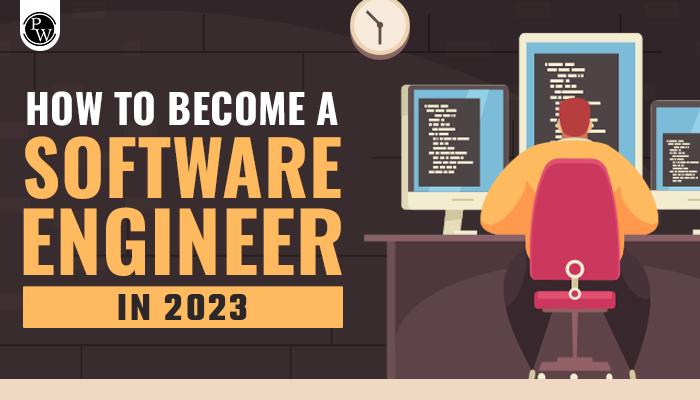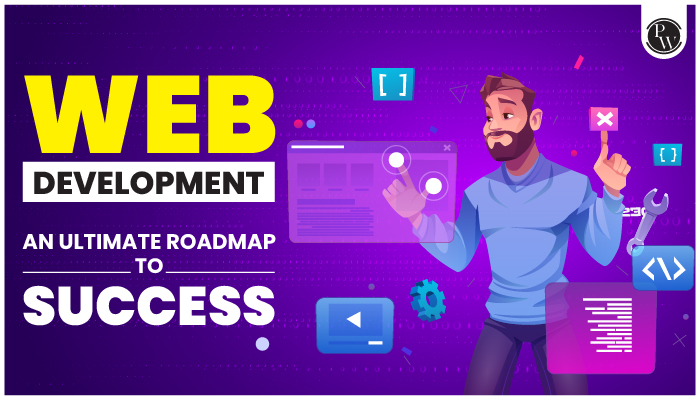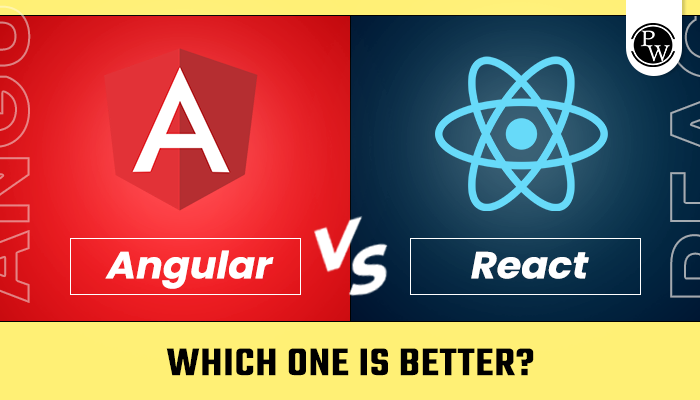Are you someone who loves to solve problems, has a strong curiosity about software functioning, and is always looking for ways to push technological boundaries? If you enjoy interacting with machines, have a talent for solving puzzles uniquely and efficiently, possess strategic thinking abilities, and thrive on challenges, a software engineer could be an ideal career path.
This field lies at the heart of every digital tool and application we use, from essential productivity tools to web browsers. It involves creating and maintaining software, making it a dynamic and impactful field.
Recommended Course
- Decode DSA with C++
- Full Stack Data Science Pro Course
- Java For Cloud Course
- Full Stack Web Development Course
- Data Analytics Course
What is Software Engineering?
Software engineers are experts in programming languages, computer systems, and how technology interacts with humans. They use their knowledge to develop software solutions that meet user needs. They create various software applications such as operating systems, computer games, business tools, and control systems.
Software development is a sought-after role in today’s rapidly evolving technological landscape. To build applications effectively, the Full Stack Web Development course must possess excellent communication and interpersonal skills to understand and fulfill user demands and requirements.
Software Engineering specialization
1. Front-end web Developer
Front-end web development encompasses the creative process of designing, constructing, and evaluating the user experience (UX) and user interface (UI) elements of websites and web applications. Front-end developers are responsible for crafting the visually appealing and interactive components that users encounter and engage with on these digital platforms.
To achieve this, front-end developers utilize languages such as HTML, CSS, JavaScript, and various associated frameworks and libraries. These tools enable them to bring websites and web applications to life, ensuring an intuitive and captivating user experience.
2. Back-End web Developer
Back-end web development, often called server-side development, focuses on constructing and managing the non-visible components of websites and web applications. This entails working on the behind-the-scenes functionality that powers these digital platforms.
Back-end development involves various aspects, including database management, web architecture, server configuration, user authentication and authorization, handling, and processing user requests, integrating Application Programming Interfaces (APIs), and ensuring the implementation of appropriate logic to facilitate efficient performance for the front end. The intricate work ensures the smooth operation of websites and web applications, enabling seamless user experiences.
3. Full-stack web Developer
Full-stack web development is the complete process of creating, developing, testing, and deploying all the components of websites and web applications, from the front end to the back end. It requires developers skilled in handling all aspects of the development cycle, including the user interface and the technical infrastructure.
Full-stack developers can seamlessly integrate and coordinate the visual elements and technical functionality to produce a polished final product. They are proficient in the entire development cycle, from the project’s inception to its successful implementation.
4. Game Developer
The world of game development involves creating games that can be played on devices like PCs, game consoles, web browsers, and mobile phones. Game developers use their skills to bring imaginative worlds to life, crafting engaging experiences for players.
They create immersive virtual environments and captivating gameplay mechanics, building interactive entertainment that can be enjoyed across various platforms. It’s an exciting field that combines creativity and technology to provide players with enjoyable gaming experiences.
5. Desktop application developer
Creating software applications designed to run on personal computers is known as desktop application development. These applications are user-friendly and visually appealing, featuring intuitive graphical user interfaces (GUIs).
Examples of desktop applications include image editors, word processors, and other programs that can be easily accessed and utilized on your local computer. Desktop application developers use their skills to create powerful, feature-rich software solutions that cater to various user needs, ultimately enhancing productivity.
Salary of a Software Engineer
| Experience | Average Salary(per annum) |
| Entry-level | 345000 INR |
| Mid-level | 795000 INR |
| Experienced | 1000000 INR |
How to Become a Software Engineer?
1. Choose your education environment.
When searching for a job, having a solid education can greatly benefit you, as employers tend to prioritize this aspect. Although some companies may accept a two-year associate’s degree, a four-year bachelor’s degree is often preferred.
It’s essential to note that the degree should be related to software engineering or the IT industry. Pursuing a different major, such as journalism or botany, is unlikely to offer advantages in the programming field.
2. Be curious.
No matter which educational approach you select, developing efficient learning skills to enhance your studies and strengthen your knowledge is essential. Learning effectively is crucial for success as a software engineer, as the profession requires continuous learning.
You should be aware of certain learning techniques that may seem intuitive but are counterproductive and ineffective. These techniques rely on minimal cognitive effort, including passive re-reading, note-taking, and indiscriminate highlighting or underlining.
On the other hand, active recall and spaced repetition are two highly effective and mentally stimulating strategies for retaining information. These methods have proven to be the most advantageous for promoting effective learning.
3. Learn a programming language.
The programming world contains various programming languages, each offering unique advantages and purposes. These languages can be categorized into various types, including Object-Oriented languages (such as Java, C++, and C#), Scripting languages (like JavaScript, Python, Ruby, and PHP), Logical languages, Functional languages, and more.
While it is beneficial to know multiple programming languages, it is important to focus on thoroughly understanding and mastering one language before starting another. By fully dedicating your time and effort to grasp one language, you can build a solid foundation before expanding your repertoire to include additional languages.
4. Learn DSA
When preparing for software engineering job interviews, you’ll likely encounter questions about “data structures and algorithms.” A strong understanding of data structures and algorithms is essential for enhancing your problem-solving skills, enabling you to find optimal and practical solutions to various challenges.
It also empowers you to write scalable and easy-to-maintain code. Data structures are designated storage spaces that efficiently organize and store data elements. They enable computers to perform calculations accurately and efficiently.
On the other hand, an algorithm consists of a precise sequence of step-by-step instructions. These instructions guide a computer on how to carry out a specific task, ultimately solving a given problem.
5. Learn Database architecture and SQL.
As a developer, having the knowledge and skills to store, manage, maintain, and design database architectures is incredibly valuable. Understanding database operations, including CRUD operations (Create, Read, Update, Delete), and proficiency in writing basic SQL queries are essential.
In complex and large-scale software applications, the ability to handle vast amounts of data becomes crucial. Exploring various types of databases, such as the distinctions between relational and non-relational databases, also known as NoSQL databases, is beneficial.
Studying SQL (Structured Query Language) can greatly enhance your abilities. SQL is a query language for retrieving and manipulating data within relational databases. Acquiring proficiency in SQL will enable you to effectively interact with and manage data in these types of databases.
6. Build your non-technical Skills.
While it is undoubtedly important to focus on developing your technical skills to become a proficient software engineer, it is equally crucial not to overlook the significance of non-technical skills, often called soft skills.
Contrary to the stereotype of software engineers working in isolation, secluded in a room with minimal social interaction, the reality is quite different. As a software engineer, you will frequently collaborate with others and be an integral part of a team. Therefore, possessing strong social and interpersonal skills is vital to thrive as a valuable team member in your professional journey.
PW Skills Provide Various Platform
Frequently Asked Questions
Q1. What skills are required to become a software engineer?
Ans. The following skills are essential to become a software engineer:
- Computer programming languages like C++, C#, HTML, JAVA, JavaScript, and Perl
- Data Structure and Algorithms
- Problem-solving
- Source control
- Basics of testing
- Microsoft Excel
Q2. Can I do software engineering after class 12?
Ans. Yes, students can enroll in various UG courses that offer software engineering specialization.
Q3. Can I become a software engineer in 1 year?
Ans. It can take you anywhere from 4 months to 4 years to learn the fundamentals of software engineering. It depends on an individual’s educational background, technical skills, and problem-solving skills.
Q4. Which UG or PG degree programs are available for software engineering?
Ans. The most appropriate course to pursue would be B. Tech In computer science, students can also pursue BCA (Bachelor of Computer Applications) and BSc. Computer science hons.
Q5. What are the top companies recruiting software engineers?
Ans. Given below are the top global companies hiring software engineers:
- Microsoft
- Paychex
- Oracle
- SPA SE
- PayPal
- Salesforce
Data Science Interview Questions and Answers
Data Science Internship Programs





